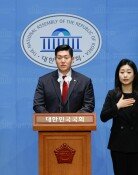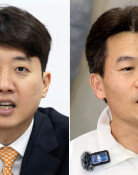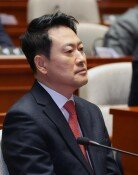Around 1,000 Candlelight Vigil Suits Pending
Around 1,000 Candlelight Vigil Suits Pending
Posted May. 14, 2010 11:55,
Shortly after the MBC TV news magazine PD Notebook aired a program on the dangers of mad cow disease in American beef in late April 2008, candlelight protests against the resumption of U.S. beef imports rocked Korea.
The rallies eventually subsided, but more than 1,000 civil lawsuits and criminal charges are pending related to the violent protests.
A high-ranking court official said Thursday, The candlelight protests are the case resulting in the largest number of lawsuits. The significance of communication between the government and people has been emphasized. We must remember, however, that Korea paid a huge price for the social discord caused by the protests.
○ Rulings confirmed in one third of criminal cases
According to the Supreme Prosecutors` Office, 1,476 people were charged with obstruction of traffic, occupation of roads, illegal evening rallies outdoors, violence or obstruction of justice while the candlelight protests raged on. Among them, 1,270 were tried, including 45 who were incarcerated, but rulings were handed down for just 410 of them, or one third.
In October 2008, Seoul Central District Court judge Park Jae-yeong asked the Constitutional Court to rule on the constitutionality of the law banning nighttime outdoor rallies. This prompted many judges to delay their trials.
In September last year, the Constitutional Court said in a ruling, The relevant law should be revised by late June 2010 since the article prohibiting nighttime outdoor rallies is unconstitutional.
The ruling has divided the judiciary. Certain judges say those who violated the evening rally ban must be punished until revision, while others say the Constitutional Courts decision should be respected. After the decision of the Constitutional Court, 11 of 23 nighttime outdoor rallies tried in court resulted in not guilty verdicts.
In October last year, Seoul Central District Court judge Lee Je-shik ordered a defendant to pay a fine but found him not guilty of participating in a nighttime outdoor rally.
Judge Hong Jin-pyo of the Seoul Northern District Court in the same month, however, sentenced a man charged with holding 28 unreported nighttime outdoor rallies to eight months in prison with a two-year stay of execution. The ruling implies no leniency for those taking part in violent protests until late at night even if laws on nighttime outdoor rallies are revised.
○ Many lawsuits expected
Dozens of lawsuits seeking compensation for damages remain pending. Police sued 17 members of the Peoples Association for Measures Against Mad Cow Disease for leading violent protests in July 2008, demanding 510 million won (450,000 U.S. dollars). The case is ongoing.
A lawsuit was also filed against police by a woman who claims she was beaten by officers in a protest. Seoul Central District Court judge Lee Sun-hyeong, ruling on a complaint filed by the female college student who was allegedly trampled by police, recommended a settlement and urged the government to award her nine million won (7,979 dollars) in compensation.
The protests have also created many cases of administrative litigation. The Seoul Administrative Court ruled in favor of the plaintiff in an administrative litigation filed by Womens Solidarity in Gyeonggi Province against the Gender Equality and Family Ministry.
The ministry had removed Womens Solidarity from the list of government-supported groups on the grounds that the civic organization failed to submit a written statement saying it did not proactively participate in the candlelight protests.
In February, the administrative court also upheld the firing of a teacher who gave higher scores to students participating in the protests. Many civil and administrative lawsuits are expected to be filed when the rulings on criminal charges are released, a court official said.
bell@donga.com baltika7@donga.com







